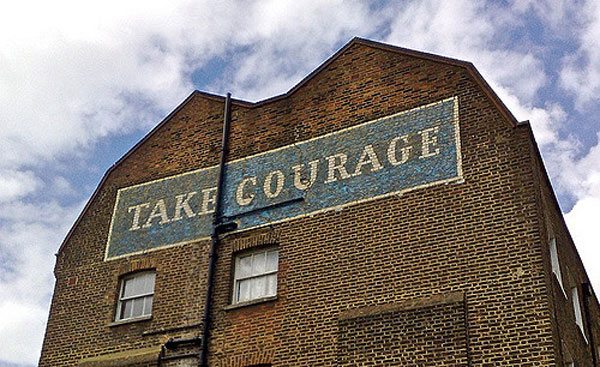
September 6, 2017; Ford Foundation, “Equals Change”
Darren Walker, the president of the Ford Foundation, has released his annual letter to the foundation’s community. It is worth sharing for its call both to immediacy of purpose and a full acknowledgement of our history. Without that, he says, we will continue living out the hell we deny. He calls this letter, “A Call for Moral Courage in America.”
I recall James Baldwin’s words during the heights of the civil rights movement in 1965: “History…does not refer merely…to the past. History is literally present in all that we do.” And so I am mindful that just like the leaders who came before us, we are caught between the history from which we emerge and the history to which we aspire.
But, have we indeed emerged from this history? Walker goes on to say,
It bears repeating that at the same instant that 56 men signed the Declaration of Independence, swearing that “all men are created equal,” they founded a nation in which all people were not. And because we have never sufficiently acknowledged this fact, America’s original sin has never left us. Indeed, it has fueled inequalities that persist to this day—whether in the form of mass incarceration or wealth inequality, housing discrimination or education and health disparities.
All of these very current crises stem from our complicated, difficult, unaddressed history. The time has come for our nation to reckon with its past.
He writes that our inability to reckon with this aspect of our past and our present exhibits itself today in our apparent confusion about what the country is meant to stand for.
The United States is not alone in the need to evolve—and emerge stronger—from history marred by injustice and hate. Countries like South Africa and Germany have worked deliberately to address the evils in their own national histories, but America has been neither willing nor able to take comparable steps.
Sign up for our free newsletters
Subscribe to NPQ's newsletters to have our top stories delivered directly to your inbox.
By signing up, you agree to our privacy policy and terms of use, and to receive messages from NPQ and our partners.
While systems conspire to constrain our leaders, the only acceptable response is courage—the moral courage to reject and rewrite the old rules. It was from the steps of the United States Capitol, in the presence of presidents, and with hope for the future, that Maya Angelou proclaimed, “History, despite its wrenching pain, cannot be unlived, but if faced with courage, need not be lived again.”
And then he addresses the question of immediacy—the urgency of the need for courageous leadership:
It is up to each and every one of us to stand up for what is right—to our boards and shareholders and political parties, to our friends and colleagues, if necessary—even when it is not in our immediate interest. And we cannot wait; we must be the leaders our countries need and the world deserves. After all, what is the point of leadership, if not to lead in times like these? What could we possibly be holding onto, or out for, when everything—everything—is at stake?
Soon, it may be too late for courage, too late to take the necessary steps to mend our society. We risk reaching a day when whatever ability we had to influence change or protect our democratic values will have been squandered. “
Instead, I am hopeful that we can—and will—realize the urgency of now. I am hopeful because I see every day that we, together, are ready and eager and impatient to lead the way toward a more righteous world defined by its commitment to justice and fairness.
Now is the time for courage. Maya Angelou famously said, “when someone shows you who they are, believe them the first time.” And so this year, my message is simple: Like the poet says, let us show each other—and the world—who we are.
Although we have reprinted large sections of the letter here, we do want to direct you back to Ford’s website, where you can read the whole piece and comment. NPQ made a similar call to action after last month’s events in Charlottesville. Please let us know what you are doing—or what you need to act— at this critical time. As nonprofit leaders, we help move the country forward by reckoning with our past and, together, designing more just and democratic futures.—Ruth McCambridge













